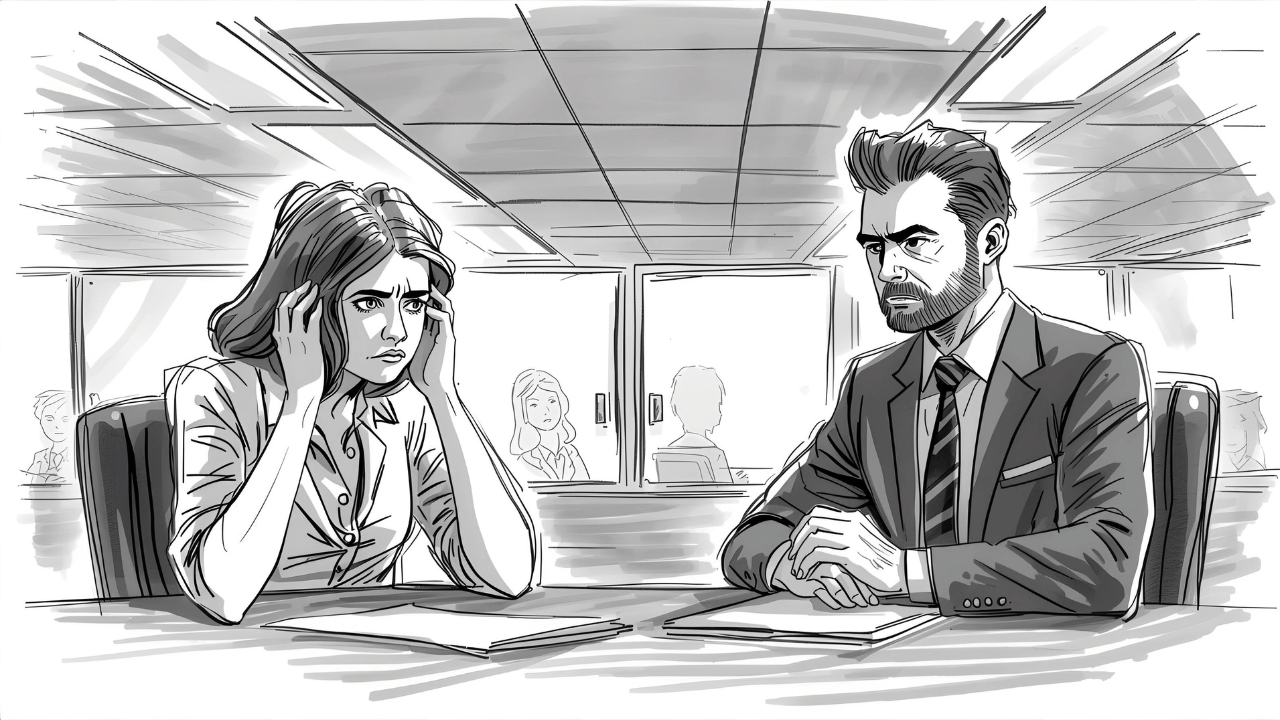Ghosted After a Job Offer [8 Reasons and How to Avoid It]
Have you ever experienced the feeling of being left in the dark after a promising job offer? If you have, then you know how frustrating and confusing it can be to be "ghosted" by an employer. Ghosting is a relatively new term in the world of recruitment, but it's a phenomenon that's becoming increasingly common.
It refers to the practice of an employer suddenly cutting off all communication with a job candidate, even after extending a job offer. The sudden silence can leave candidates feeling helpless, anxious, and wondering what went wrong.
In this article, we'll explore the following:
How common it is for employers to ghost a candidate.
How to know if and when you’ve been ghosted.
Reasons why employers ghost candidates.
What you should do if you’ve been ghosted after a job offer.
Your recourse after being ghosted.
How to avoid being ghosted by an employer in the future.
Why you should never ghost an employer.
Whether you’re a recent graduate or an experienced professional, understanding how to navigate the murky waters of job offers and ghosting can make all the difference in your career trajectory.
How often do employers ghost candidates?
Ghosting isn’t new to most Millennials and Generation Z. If you’ve done online dating, there’s a good chance you’ve been ghosted. In fact, one study shows that 56% of online daters have ghosted someone or been ghosted.
What’s astonishing is that surveys conducted by iCIMS and Indeed indicate that 77% of candidates have been ghosted by a potential employer at some point during their job search.
Nearly 20% more ghosting happens in recruitment than online dating. You would think that more people would be ghosted online dating because it’s much less of a professional space, but that’s not the case.
You’re more likely to be ghosted by a recruiter or hiring manager than by someone you’re trying to date.
And it’s not only employers doing the ghosting. In one survey, 95% of recruiters stated that they have been ghosted by candidates after the first interview. Everyone is ghosting everyone during the hiring process.
Percent of Candidates Ghosted by Employers
Do companies ghost job seekers after signing a job offer?
The iCIMS surveys did not consider when an employer ghosts a candidate so we conducted our own survey. Fortunately, it appears that ghosting after a job offer is rare.
Out of all the professionals we surveyed, only around 3% had been ghosted after a job offer was extended.
Although it seems to be incredibly rare, one executive assistant we spoke with mentioned that it happened to her three times. So it does happen.
The remainder of this article will discuss how to tell if you’ve been ghosted, reasons why you may be ghosted, and how to hopefully prevent it in the future.
How to know if you’ve been ghosted
If you’re expecting to hear back from an employer after a job offer, it can be difficult to know when you’ve been ghosted. However, there are some signs that can indicate communication has stalled.
Lack of Response
If you haven’t heard back from the employer after several attempts to follow up, it’s likely that you’ve been ghosted. Keep in mind, this is when a job offer has already been extended to you.
Unlike earlier stages in the recruitment process, the employer isn’t trying to juggle hundreds of emails and phone calls to candidates. Communication should be fairly quick. If you haven’t heard back within a five-business-day time frame, you should be concerned about being ghosted.
Lack of Clarity
If the employer’s communication becomes vague or unclear, it’s possible that they’re avoiding a straightforward answer. This could mean that they’ve changed their mind and are avoiding telling you directly.
Hello, World!
Silence After Acceptance
If you’ve accepted a job offer and haven’t heard back from the employer for several days, it’s possible that they’ve decided to rescind the offer without notifying you.
There are many factors that could contribute to ghosting. Some of them are more innocent such as someone who became ill or quit their job.
This may be more prevalent at smaller companies where there may not be someone to step in quickly and pick up the pieces. But sometimes, it’s nothing short of poor behavior on the part of the employer. Let’s discuss some of the reasons why employers ghost candidates next.
What Doesn’t Indicate Ghosting
There’s some pretty crazy career advice out there so I wanted to take a minute to dispel a myth I commonly see on blogs that aren’t written by people in hiring. Some tell you that if you see the job still advertised on a job board it’s a sign you’re being ghosted after an offer.
This has nothing to do with your offer or ghosting. Most ads continue to run past the initial job offer stage. Just because you see the job still posted on a job board, does not mean the company is about to or is ghosting you.
Reasons Why Employers Ghost Candidates
Not surprisingly, many employers ghost candidates for the same reasons people ghost others when online dating. Things like conflict avoidance, expectations not meeting what was on paper, or shifting desires.
The reasons employers ghost candidates can vary depending on the company and circumstances surrounding the job offer. Some common reasons why employers ghost candidates are below.
Avoid Confrontation
Many people are conflict-avoiders. Let’s be clear, this should never be acceptable in any setting, but it happens. This is usually caused by another reason below, but the root of the problem is the desire to avoid a problem. In the end, ghosting a candidate usually creates more problems, but at the moment people feel safe.
Your Actions
When online dating, people often get ghosted for not living up to what they advertised. When it comes to hiring, everyone is watching your actions closely in an attempt to figure out who you really are. They want to see how you behave in different situations and it’s possible that you did something that spooked the hiring manager.
If you presented a certain way in an interview, but the employer later finds something online that is contrary to what you presented, they may change their mind and ghost you.
Rescinded Job Offer
Sometimes things change and an employer may rescind a job offer. This means the job offer is taken back, and rendered null and void. It is possible that an employer rescinds a job offer and then ghosts you. Although wrong in our opinion, this is common because they want to avoid confrontation and uncomfortable feelings.
Conditional Job Offer
Some job offers are conditional. They depend on the outcome of reference checks, background checks, or credit checks. During the final stages, it is possible that you did not meet the employer’s expectations.
It’s common for employers to not share the details of their expectations, so you may never know the exact reason why the offer was taken back. This could result in the recruiter or hiring manager ghosting you even after you’ve accepted a conditional job offer.
The Role Was Eliminated
Why would someone hire you and then eliminate the role? We don’t know. It doesn’t make a lot of sense, but it does happen. It tends to happen more in economic uncertainty. It is possible for you to accept a job offer and for the role to be eliminated before you start. Although it’s never ok to ghost someone, this is a possible reason.
Illness and Vacation
Usually, there are multiple decision-makers involved in the hiring process. Although you may only meet a handful of them in an interview, it’s not uncommon for someone else to have the final decision. This person could be out of the office or they could be sick.
Oftentimes untrained managers and recruiters don’t know what to do when they don’t have any information to report. In this case, you may be temporarily ghosted because they don’t know how to handle the conversation. They don’t want to lose you as a candidate, so instead they freeze and go silent until they have news to report.
Terminations
Although less likely, we have seen situations when someone leaves a company and this causes a disruption in the hiring process. There really is no one to blame other than bad processes.
When this happens it’s common for candidates to get ghosted, even after a job offer has been extended. This tends to occur more in smaller organizations. Your emails and all communications go into an abyss because no one is on the other end and no forwarding was set up.
You’re the #2 Candidate
It’s highly unethical, but we have heard stories of candidates being ghosted because recruiters were “keeping them warm” for a manager. In reality, they were waiting for their #1 choice to accept or decline a job offer. Why they would extend two offers to you also, we don’t know. But it has happened.
What you should do if you’ve been ghosted after a job offer
Being ghosted after you thought you had a job offer is disheartening. If you’ve been ghosted after a verbal offer or written offer, you may be wondering what you should do next. Here are some steps to try and regain control of the situation.
Follow Up
If you haven’t heard back from the employer after five business days or two days before your start date, follow up with them. Be professional, but candid in your communication, and attempt to clarify the situation by asking if there have been any changes in the hiring process.
The employer may continue to ghost you, but there’s a chance that they will respond with reasons about why they’ve been radio silent.
A professional, but candid email could look like this:
Cole,
I returned the signed offer letter to you five days ago, but I haven’t heard from you for nearly a week now. I understand that you’re probably busy, but I expected some form of communication about the next steps for onboarding by now.
As you can imagine, the situation has made me a bit nervous as I recently quit my current position after signing your offer. Please let me know what the next steps are or if anything has changed in regard to the offer.
Cheers,
Tim
If you don’t hear from them after your initial follow-up, follow up again with something like this:
Cole,
I have been trying to get in touch with you for over a week in regard to the next steps for onboarding. I assume you received my signed offer letter on 4/17. To be candid, I’m a bit taken aback by the lack of response after signing the offer.
I’d appreciate a response indicating the next steps for onboarding or a note from you if you’ve rescinded the offer.
Cheers,
Tim
If you have a phone number, always follow up with a phone call as well in case your emails end up in a spam box. Also, if someone is on vacation or has left the company, the best way to find out is to call the office. While it may not make your situation better, at least you’ll have some peace of mind knowing what is happening.
Learn and Move On
It can be really difficult to accept silence from a recruiter or hiring manager. If no one has replied to your emails or phone calls, it probably means your offer has been rescinded.
If this is the case, there isn’t much more you can do other than learn from the experience and move on. Pick yourself back up and continue working through your job search strategy. Review the reasons why you may have been ghosted and use our ghost prevention section in this blog to do what you can to prevent this from happening again.
But remember, most of the time, there isn’t much you can do. Many times ghosting happens for reasons outside of your control and there is nothing wrong with you.
File a Lawsuit
We’ll discuss this in the next section in more detail. Depending on your situation, there may be legal recourse for you if an employer ghosts you after signing an offer letter.
Post a Review
Ghosting is never acceptable and unless we hold others accountable, they will continue to perform poorly. Post a review on Glassdoor or other employment sites about your experience. We advise that you do this anonymously whenever possible.
Although this won’t change anything for you, it may prevent someone in the future from being ghosted by the same recruiter or hiring manager. Pay it forward whenever you can.
Your legal recourse after being ghosted
The sad truth is, there isn’t really much legal recourse for people who are ghosted after a job offer is extended.
All 50 states have at-will employment with the exception of Montana. This means that an employee can quit a job at any time and an employer may terminate the employee for any non-discriminatory reason. If you accepted a job offer to be an at-will employee, you don’t have much recourse.
In addition, if your job offer was conditional and you didn’t meet the requirements set out by the employer, they can revoke the job offer. Some states do have laws however that prohibit some questions from being asked. For example, California has a “ban the box” law that prevents employers from asking about criminal history before making a conditional offer. Laws like this one open up opportunities for legal recourse.
You’ll also have to show damages for a lawsuit. Things such as moving to a new state based on the offer could be an example of damages. In our experience, these claims are difficult to win because of the at-will employment doctrine.
If you choose to take legal action, it’s best to consult with an employment lawyer about promissory estoppel or contract claims. We’re not advocating that you take legal action, but know that if you choose to, there are very limited options and success seems rare.
The best thing you can do in most situations is to move on and push forward with your job search.
How to avoid being ghosted by an employer in the future
If you’ve been ghosted after a job offer, it’s best to learn and move on. In this section, we’ll discuss steps that you can take to reduce the likelihood of being ghosted in the future.
References
One of the reasons people are ghosted is because they had a conditional offer based on reference checks and those reference checks didn’t come back positive. Never give references on a resume. References should be given only after an offer is extended or about to be extended.
Before you give anyone any contact information, call your references first. Make sure they know what job you are being hired for and any background information that may help them give you an outstanding reference. People who are prepared perform better. Help your references be prepared for the call.
This will also ensure that your reference is expecting the call so the recruiter doesn’t have to chase them.
Online Audit
Audit your online profiles. Check your social media accounts. Google is your new resume and over eight percent of employers will google you before extending a job offer. Make sure you don’t have anything online that is contrary to how you’ve presented yourself to the employer.
For more information about what you can do to clean up your online profiles, read the below article.
Related Article: Can LinkedIn Prevent You From Finding a Job
Verbal Offers
In one study, 10% of those who were ghosted after receiving a job offer received verbal offers. Verbal offers are usually a good sign of things to come, but they’re not an offer in our minds. Getting a written offer could help prevent you from being ghosted after signing an offer letter.
While not full-proof, you should always obtain a written offer before making any career-changing decisions.
Ask About Priorities
During the interview process, ask smart questions to determine how much of a priority this hire is for the company and the manager. One reason candidates are ghosted is that the opening isn’t a priority for the employer. They have no motivation to fill the role.
Set Expectations
Before you leave an interview or if you are receiving a verbal offer, always make sure there is clarity about the next steps. This may require a moment of leadership on your part. You’ll want to ask about the next steps and the timeline for those next steps. You could say something like this:
I’m very excited about this verbal offer. What is the next step? When should I expect a written offer and when would you expect my first day to be?
I’m sure you get rather busy. If I don’t hear back from you, when should I follow up?
Never Stop Job Searching
While it won’t prevent you from being ghosted, the best way to prevent ghosting from impacting you is to never stop job searching. It has become more and more common for employers to rescind job offers. This means until you have started on your first day, it’s a best practice to keep applying for jobs and interviewing.
Who knows, you may even find that job that you never thought was possible.
Why you should never ghost an employer
One in five workers accepted a job last year and ghosted the employer on their first day. No phone call, no email, they simply didn’t show up. If you’ve been ghosted before on either side of the hiring table, you know it is a terrible feeling.
If we want to end ghosting on both sides, it is up to each of us to start with ourselves. Ghosting is wrong, period. It’s wrong at any point in the hiring process. It’s wrong when employers do it and it’s wrong when candidates do it. Here are some other reasons why you should never ghost an employer.
It’s Unprofessional
Ghosting an employer is a clear indication of unprofessionalism. It reflects poorly on you as a candidate and can damage your reputation in the job market. If you don’t think employers talk to one another, think again.
It’s Disrespectful
Just as you’ve invested in having your resume written and using other tools to help your job search, employers invest time and resources in the hiring process too. Everyone deserves to be treated with respect. Ghosting an employer is disrespectful and a dismissive way to end the hiring process.
It Burns Bridges
Ghosting an employer can burn bridges that may be valuable in the future. You never know when you may encounter the same hiring manager at another company or colleagues in the job market. People change jobs on average every couple of years and there’s a good chance that the manager you ghosted could be holding the keys to the job you want later.
It’s a Missed Opportunity
Even if you’ve decided not to accept a job offer, it’s still a valuable opportunity to gain experience and build your network. By ghosting an employer, you’re missing out on potential benefits and opportunities. Handled appropriately, you could make yourself more desirable to the employer even though you’ve changed your mind about this particular job.
It’s Not Fair to Other Candidates
Ghosting an employer can leave the employer scrambling to find another candidate at the last minute. This can be unfair to other candidates who may have been interested in the position. Put yourself in their shoes.
Overall, ghosting an employer is never a good idea. It's unprofessional, and disrespectful, and can burn bridges that may be valuable in the future. Always make sure to communicate with employers in a clear and respectful manner, even if you've decided not to accept a job offer.
In Summary:
Ghosting has become more common and there’s a good chance you will be ghosted by an employer at some point in your job search journey.
You’re probably being ghosted if there is a lack of response, lack of clarity, or silence after you sign a job offer.
There are many reasons why an employer may ghost you. Some of them are downright disrespectful, while others may be more innocent. Don’t jump to conclusions.
Communication is the most important thing when someone ghosts you. Be sure to follow up in a polite, but candid way.
There are things you can do to minimize your chances of being ghosted after receiving an offer. Get the offer in writing, make sure your references are ready to go, and set clear expectations with the hiring manager.
Cole Sperry has been a recruiter and resume writer since 2015, working with tens of thousands of job seekers, and hundreds of employers. Today Cole runs a boutique advisory firm consulting with dozens of recruiting firms and is the Managing Editor at OptimCareers.com.














Every career advice article tells you the same thing: January is the busiest month for hiring. There's just one problem. It's not entirely true.